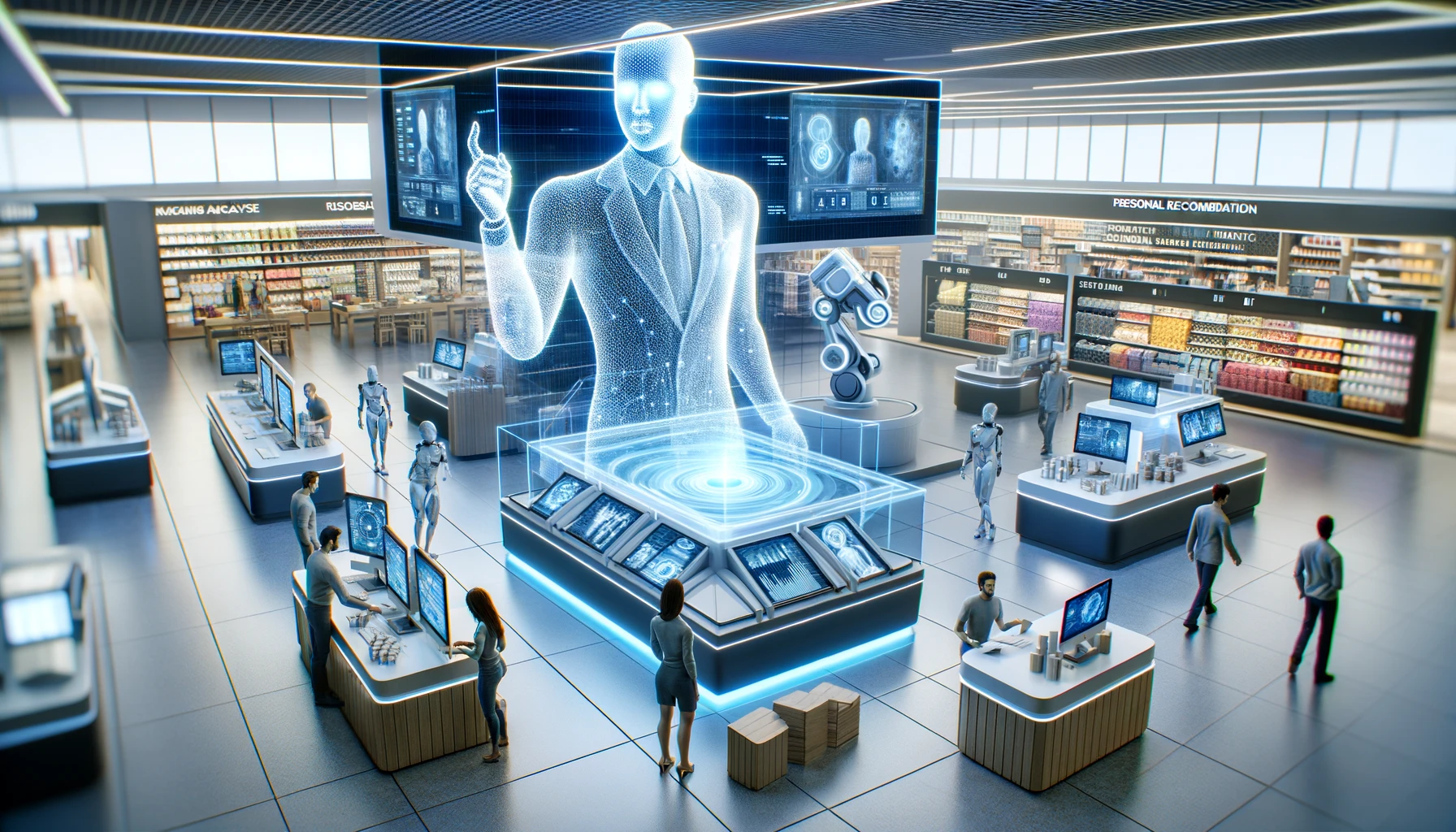Featured speaker, Forrester’s Emily Pfeiffer delivered a compelling presentation on a webinar for Retail AI Council in which she covered AI-Powered Commerce Search. Among the wealth of insights she shared, one valuable takeaway echoed a crucial sentiment across the larger AI ecosystem: “Please put a human in between GenAI and your customers. Please don’t trust it yet.” This advice is not only prudent but underscores a broader imperative for retailers to implement AI responsibly, ensuring it’s coupled with effective automation and Business Intelligence (BI).
At Sophelle, our mantra, “AI needs BI,” highlights the synergy between these two forces. AI is transforming retail, from enriching customer experiences to streamlining operations. However, its deployment is not without challenges—challenges that demand the discerning eye of BI to maximize value and ensure ethical and legal compliance.
Why AI Can’t Stand Alone: The Top 7 Reasons AI Needs BI
- Ensuring Improved Customer Experience Through AI Performance Monitoring
BI tools are crucial for monitoring the performance of AI-driven customer service solutions, such as chatbots and personalized recommendation engines. By analyzing metrics like response accuracy, customer satisfaction scores, and engagement rates, retailers can ensure their AI tools are meeting customer needs and driving sales. - Assessing AI’s Impact on Sales and Operations
Understanding the impact of AI on business outcomes is vital for justifying the allocation of financial and human resources. BI enables the analysis of KPI to measure the effectiveness of AI in boosting sales, reducing stockouts, and improving operational efficiency. A data-driven approach is required to justify further investments. - Maintaining High-Quality Data for AI Systems
The success of AI in retail heavily relies on the quality of data, from customer preferences to inventory levels. BI tools help in ensuring the data fed into AI systems is accurate and unbiased, thereby improving the reliability of AI-driven forecasts, recommendations, and decisions. - Ensuring Compliance and Ethical Use of AI
With increasing scrutiny on data privacy and ethical considerations, BI processes are instrumental in monitoring AI solutions for compliance with regulatory standards and ethical guidelines. This is particularly important in retail, where AI systems handle vast amounts of personal customer data. - Identifying Risks and Vulnerabilities
Retailers can use BI to analyze the operational data of AI systems, identifying potential risks such as security vulnerabilities or issues that could lead to customer dissatisfaction. Early detection allows for timely mitigation, ensuring the smooth operation of AI technologies. - Conducting Cost-Benefit Analysis of AI Projects
BI tools play a key role in evaluating the financial viability of AI projects in retail. By comparing the costs of AI initiatives with the tangible benefits, such as increased sales or reduced operational costs, retailers can make informed decisions about scaling or adjusting their AI strategies. - Driving Continuous Improvement in AI Applications
BI needs to provide a feedback loop for the ongoing improvement of AI systems. By analyzing customer feedback, system performance data, and financial results, BI can highlight areas where AI applications can be refined to better meet customer expectations and business goals.
Sophelle’s Commitment to Retail Innovation
Our mission at Sophelle is to empower retailers with AI, fostering significant business value. Across all practice areas, we’re dedicated to identifying opportunities, crafting business cases, selecting optimal solutions, and ensuring their successful implementation—on time, on budget, and on spec. Our BI & Data Analytics Practice plays a pivotal role, equipping AI with the necessary BI to function seamlessly with No Surprises.




